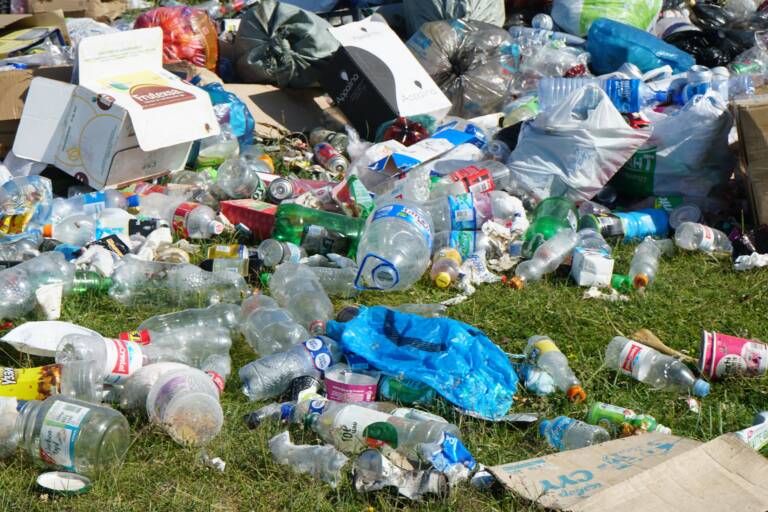From plastic to fuel, with a new low-temperature method

Pacific Northwest National Laboratory has announced a new method for converting waste plastics into fuel and feedstock that promises to help close the carbon loop in mild temperatures and high yields. Used face masks, grocery bags and food wraps contain many potentially useful raw materials. But it has been much cheaper to keep producing more single-use plastic than to recover and recycle it.
The research team reported their finding in Science.
Now, an international research team led by the Department of Energy's Pacific Northwest National Laboratory has cracked the code that has thwarted previous attempts to break down these persistent plastics.
Typically, the recycling of plastics requires the "cracking" or splitting of the tenacious and stable bonds that make them so persistent in the environment. This cracking step requires high temperatures, making it costly and energy-intensive.
The novelty is that the cracking step is combined with a second reaction step that immediately completes the conversion into a petrol-like liquid fuel with no unwanted by-products. The second reaction step uses so-called alkylation catalysts. These catalysts provide a chemical reaction currently used by the petroleum industry to improve the octane rating of gasoline.
In the current study, the alkylation reaction immediately follows the cracking step in a single reaction vessel, at room temperature (70°C/158°F).
Oliver Y. Gutiérrez, author of the study and a chemist at PNNL, noted: “Cracking just to break the bonds causes them to form others in an uncontrolled way, and this is a problem in other approaches. The secret formula here is that when one bond is broken in our system, another is immediately formed in a targeted manner that gives the desired end product. This is also the secret that allows the low temperature conversion”.
In their study, the research team, supported by scientists from the Technical University of Munich, Germany, referenced separate and recent oil industry developments to commercialize the second part of the process reported here for processing crude oil.
Johannes Lercher, senior author of the study, director of PNNL's Institute for Integrated Catalysis and professor of chemistry at TUM, noted: "The fact that industry has successfully employed these emerging alkylation catalysts demonstrates their stable nature." and robust. This study points to a new practical solution to closing the carbon loop of plastic waste, closer to the implementation of many other proposals.
In their study, the researchers note a limitation to their findings. The process works for low-density polyethylene (LDPE, plastic resin code #4) products, such as plastic wraps and squeeze bottles, and polypropylene (PP, plastic resin code #5) products that they are not typically collected in curbside recycling programs in the United States. High-density polyethylene (HPDE, plastic resin code #2) would require pretreatment to allow the catalyst access to the bonds to break.
Petroleum-derived plastic waste is an untapped resource that can serve as a starting material for useful and durable materials and fuels. More than half of the 360 million tonnes of plastic produced globally each year is made up of the plastics in this study. But looking at a mountain of plastic and seeing its value requires an innovator's mindset, the ingenuity of a chemist, and a realistic understanding of economics. These scientists are looking to change the dynamic by applying their expertise in the efficient breaking of chemical bonds.
Lercher commented: “To solve the problem of persistent plastic waste, we need to reach a tipping point where it makes more sense to collect it and return it to use rather than treating it as disposable. We have shown that it is possible to make this conversion quickly, under mild conditions, which is one of the incentives to reach this critical point.”
Similar research is also being carried out in Italy, indeed we are even more advanced, but the problems created by an asphyxiating bureaucracy are slowing down the development of this type of technology. A great pity.

Thanks to our Telegram channel you can stay updated on the publication of new articles from Economic Scenarios.
The article From plastic to fuel, with a new low-temperature method comes from Scenari Economici .
This is a machine translation of a post published on Scenari Economici at the URL https://scenarieconomici.it/dalla-plastica-al-carburante-con-un-nuovo-metodo-a-bassa-temperatura/ on Sun, 26 Mar 2023 10:06:34 +0000.
